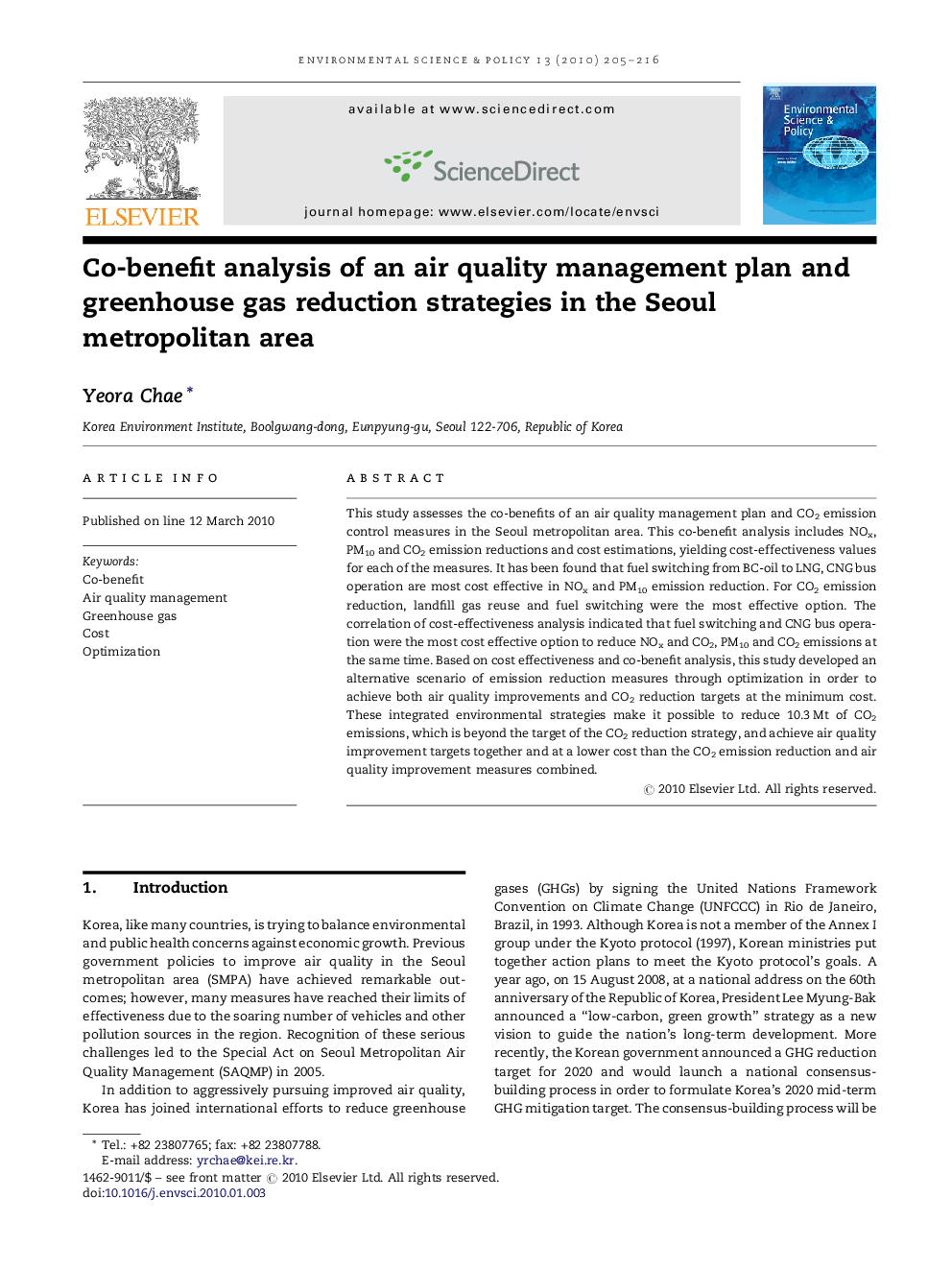| Article ID | Journal | Published Year | Pages | File Type |
|---|---|---|---|---|
| 1054039 | Environmental Science & Policy | 2010 | 12 Pages |
This study assesses the co-benefits of an air quality management plan and CO2 emission control measures in the Seoul metropolitan area. This co-benefit analysis includes NOx, PM10 and CO2 emission reductions and cost estimations, yielding cost-effectiveness values for each of the measures. It has been found that fuel switching from BC-oil to LNG, CNG bus operation are most cost effective in NOx and PM10 emission reduction. For CO2 emission reduction, landfill gas reuse and fuel switching were the most effective option. The correlation of cost-effectiveness analysis indicated that fuel switching and CNG bus operation were the most cost effective option to reduce NOx and CO2, PM10 and CO2 emissions at the same time. Based on cost effectiveness and co-benefit analysis, this study developed an alternative scenario of emission reduction measures through optimization in order to achieve both air quality improvements and CO2 reduction targets at the minimum cost. These integrated environmental strategies make it possible to reduce 10.3 Mt of CO2 emissions, which is beyond the target of the CO2 reduction strategy, and achieve air quality improvement targets together and at a lower cost than the CO2 emission reduction and air quality improvement measures combined.
